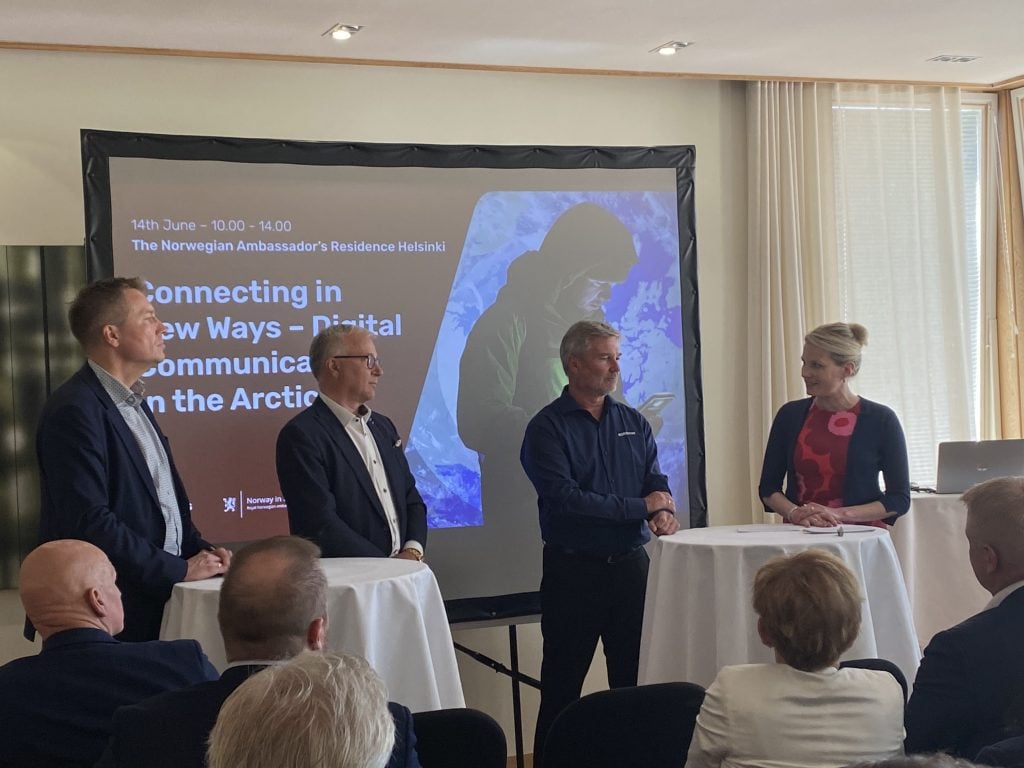
On June 14, 2023 the Royal Norwegian Embassy in Helsinki and Arctic Frontiers in collaboration with ProTromsø organized a seminar on digital communication in the Arctic. This event explored the prospects of improved connectivity in the High North through submarine cables and satellites.
The aim of this seminar was to address the possibilities and challenges for our two countries related to improved pan-Arctic connectivity. Can the changed geopolitical situation propel the urgency for this improved digital connectivity? Are regional authorities and governing organisations ready to support projects of this magnitude, and to reap the potential benefits? Are they prepared to work with businesses when it comes to, for example, land regulation? What kind of business opportunities arise from improved connectivity for existing and new companies? Which effects does robust digital infrastructure have on the regional level?
Potential for Cross-Border Cooperation
The seminar was kicked off by the welcoming remarks by Ambassador Dag Stangnes, Royal Norwegian Embassy and Anu Fredrikson, Executive Director, Arctic Frontiers. They underlined the great potential for cross-border cooperation between Finland and Norway, especially in the current geopolitical situation and Finland´s recent membership in NATO. “Finland and Norway share complimentary capabilities, skills, knowledge and location which enables these two countries to be in the centre of economic development when it comes to the digital connectivity”, said Anu Fredrikson.
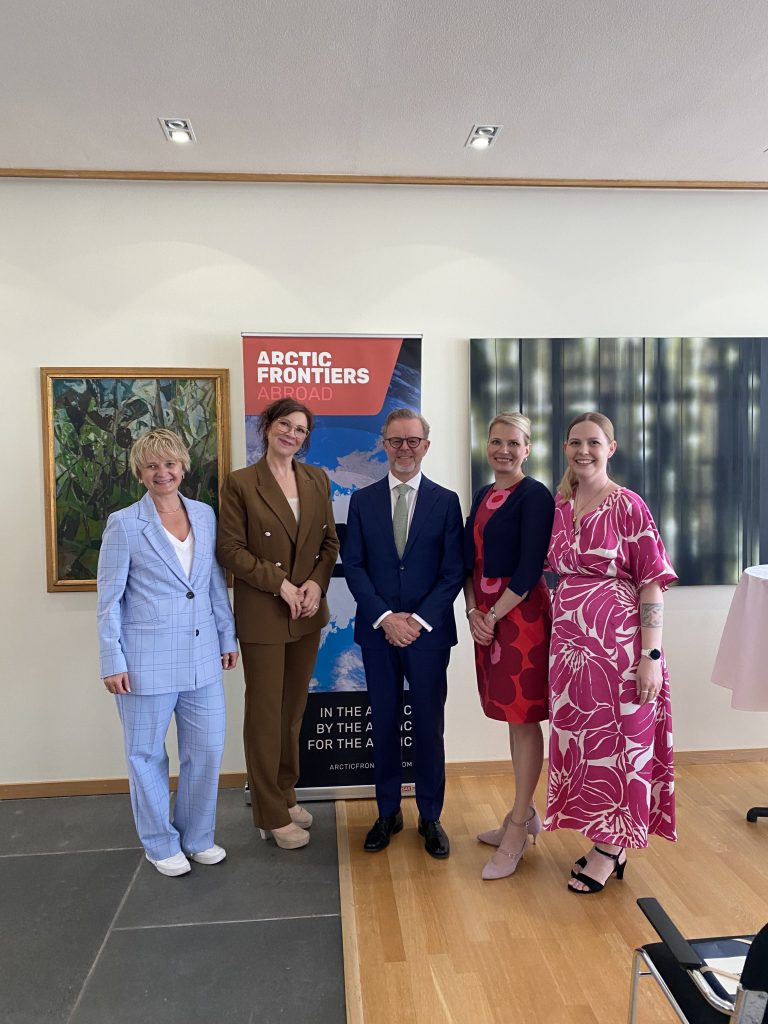
Julia Seljeseth, Arctic Frontiers; Gøril Johansen, ProTromsø; Dag Stangnes, Norway’s Ambassador to Finland; Anu Fredrikson, Arctic Frontiers; Julie-Helene Sørensen, ProTromsø

Panel 1: Juergen Qvist, Ari-Jussi Knaapila, Dag-Kjetil Hansen, Anu Fredrikson
Enhancing Resilience of Digital Infrastructure
Olli-Pekka Rantala, Director-General of Ministerial Governance Department, Finnish Ministry of Transport and Communications (LVM) gave on overview of the connectivity topic in the demanding Arctic context and underlined that Arctic is at the crossroad between the continents when it comes to the digital connectivity. In his opinion the region has strong advantages being politically stable and can enhance the resilience of the digital infrastructure globally. But improved connectivity can propel the development of the region as well by retaining the talents, creating new jobs, improving services and emergency response for the communities and support environmental monitoring.
Juergen Qvist, NORDUnet , presented the findings from an analysis of the societal value of digital infrastructure investments in the Nordic countries and underlined that the modern cable systems can be a great tool in many areas, for example in monitoring the climate change (Smart Cables) almost in the real time. The potential for business development and for the research institutions is predicted to be high according to the authors of the report.
Submarine Cables – The Global Gateway
A project which is high on the agenda today when it comes to the submarine cables in the Arctic is the Far North Fiber project. It was presented by CEO Ari-Jussi Knaapila, Cinia. This submarine cable will connect three continents: Asia, North America and Europe. This project has already recruited 50 larger customer candidates and over 60 equity investors. When realised, this project can make Northern Europe a global digital gateway. Having this infrastructure in place will also allow to improve connectivity locally and regionally for the peripheral arctic communities.
Dag-Kjetil Hansen, Bredbåndsfylket (Broadband provider in the Norwegian Arctic) continued on this regional angle and underlined the potential of the improved digital infrastructure for local businesses and also in other areas, for example, research and education, health and even film-making.
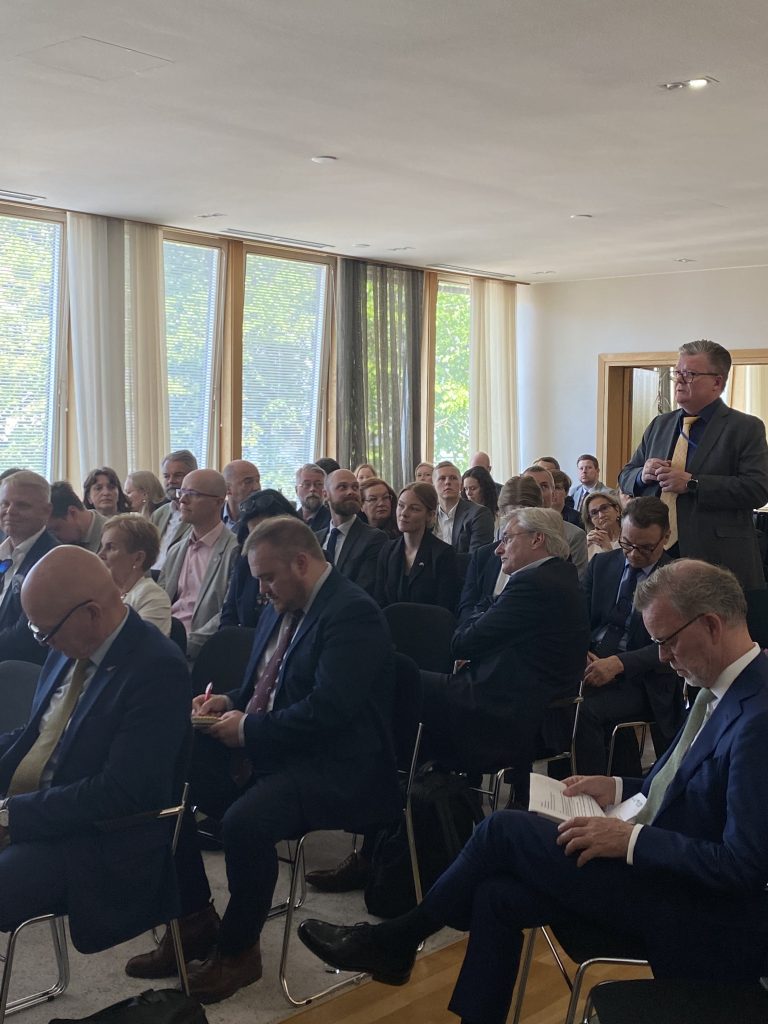
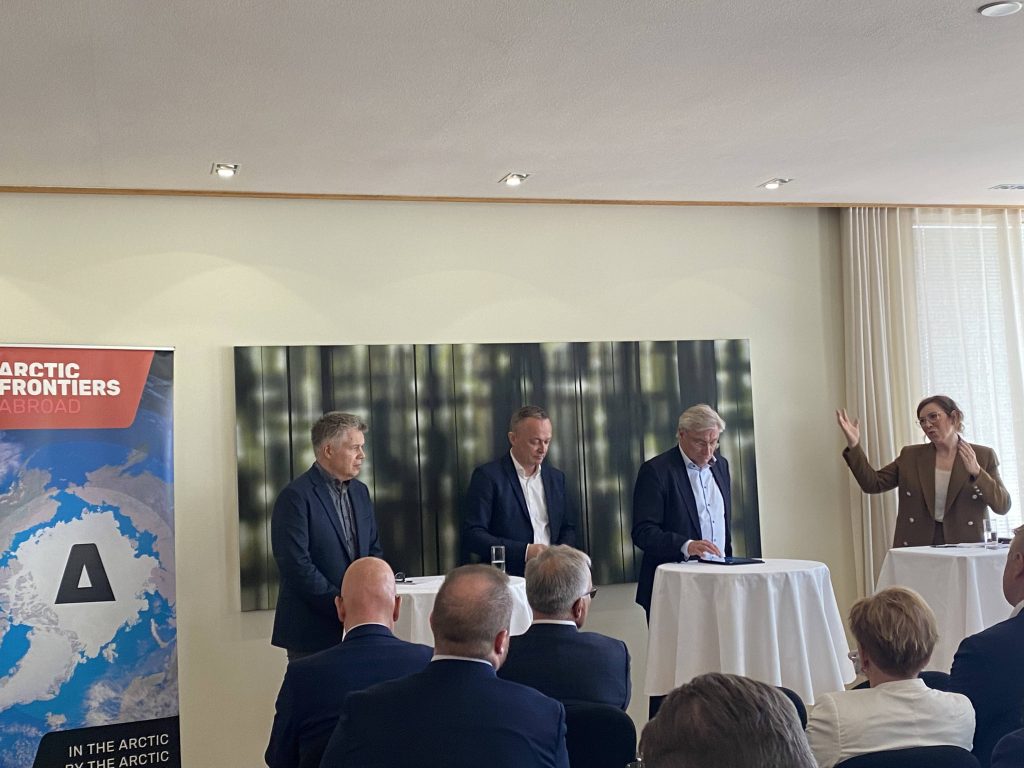
Panel 2: Anders Andersen, Nils Arne Johnsen, Per Öster, Gøril Johansen
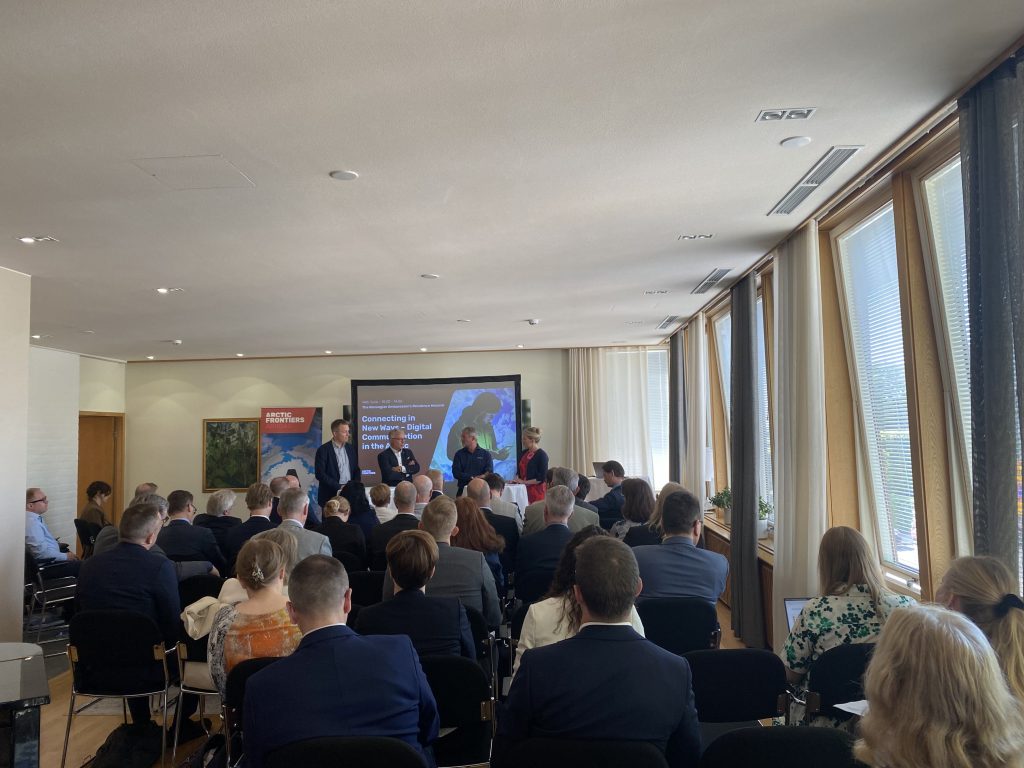
The event took place in the Ambassador’s residence at the Royal Norwegian Embassy in Helsinki.
Building Knowledge and Competence
The second panel focused on how a robust, more resilient digital infrastructure can provide a source of growth for the Nordic regions.
Per Öster, CSC (CSC – IT Center for Science) underlined the importance of building up a capacity for transporting, storing, and processing data. But even more importantly we need to build up knowledge and competence in our countries, as we can not be dependant on others. “We need to understand the systems if we want to be able to use them properly”, said Anders Andersen from the UiT, the Arctic university of Norway. The Nordic region has advantages in this respect, having enough green energy, cool climate conditions and even remoteness becomes an advantage as it often adds to the security of the infrastructure, said Nils Arne Johnsen, Troms and Finnmark County Council.
The last panel: From space to earth – the benefits of modern digital solutions and technology in the Arctic focused on success stories from Norwegian and Finnish businesses and institutions in the space sector.
Yngve Vassmyr presented a new Earth Observation Centre initiative in Tromsø, Norway, Tero Vauraste from Iceye, Finland, shared the latest developments in his company. Pekka Rantala from Business Finland described a fascinating potential of the ‘network of the future’ based on the 6G technology.
The speakers also described a need for larger launch capacity, which has become more limited with Russia being out of the picture, the lack of access to the capital, limited number of funding programs and a tough competition for the funds. They all agreed that there should be a united European approach to space technologies to ensure the leading role in the future.
For digital infrastructure projects of this scale, it is important to secure national and regional support. There is a need to build awareness and knowledge on all levels, and to market the opportunities to potential beneficiaries. We hope that this seminar was one step in this direction.
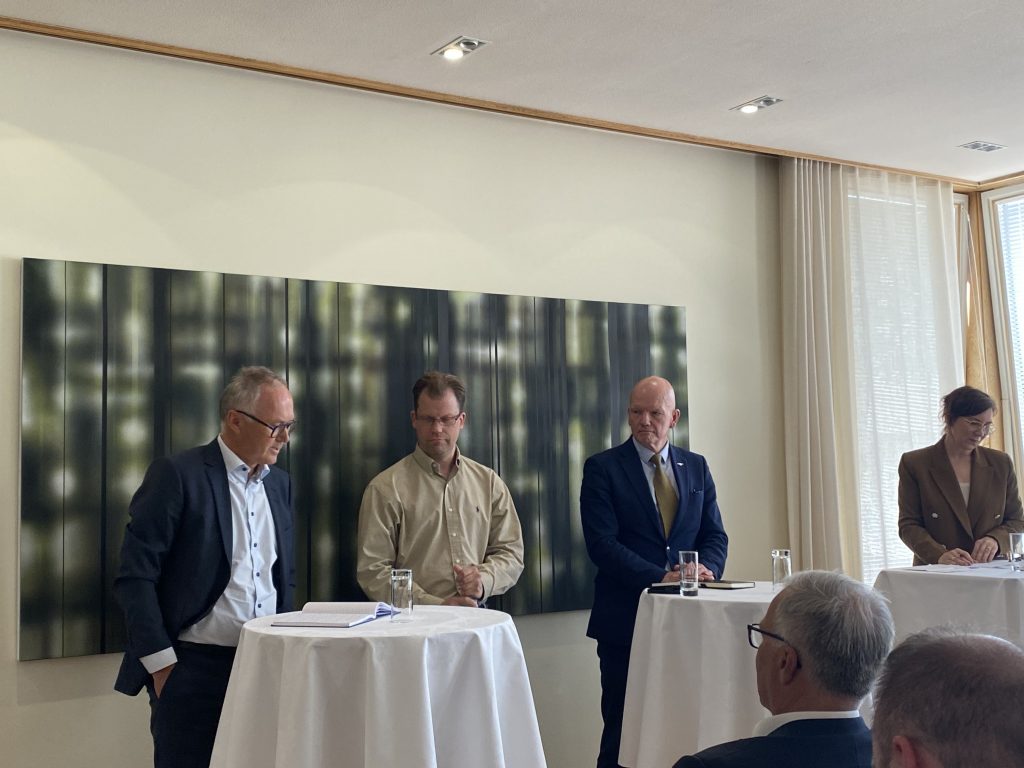
Panel 3: Yngve Vassmyr, Pekka Rantala, Tero Vauraste, Gøril Johansen